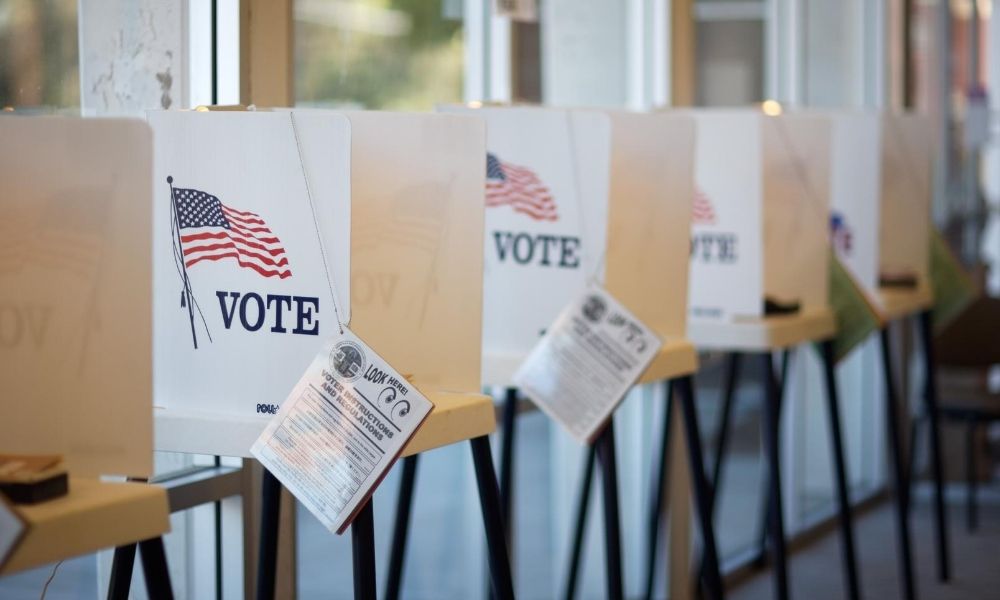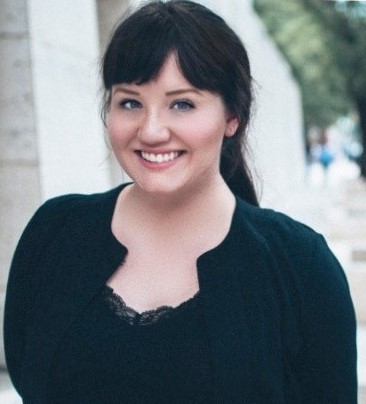BLOG
What College Students Need to Know Before Voting on Election Day
Back to the blog
It’s August 2020, and you know what that means – there’s a pretty major election right around the corner. As in, the big election we have every four years to elect the President of the United States and several major Senate seats. Come November, Americans will have the ability to cast their votes on Election Day, when U.S. citizens can vote by popular ballot for candidates in public offices held at the local, state, and national levels.
No matter where you stand politically, there’s no denying that voting is a crucial part of a democracy. In fact, it’s such a big deal, that the Fifteenth Amendment of the U.S. Constitution protects your rights as an American voter. As a college student, it’s obvious that you have opinions about pretty much everything—from student loan forgiveness programs to post-graduation employment rates. But, how can you have a say in these policies and others, if you choose to not participate in important elections?
Despite the importance of voting, many people decide to skip out on it, usually because they don’t support either candidate in the running, or they don’t believe that one vote could make a world of difference. Well, your pals at uCribs want to remind you that neither is a valid enough reason to forego voting this year – or any year, for that matter. From demographic statistics to the importance of local electoral races, here is everything college students need to know about casting their vote.

Gen-Z voters can be highly influential in the election.
Generation Z voters – or, young adults born during or after 1996 – are one of the most important voting blocs. According to Pew Research Center, one in ten eligible voters in 2020 is a member of Generation Z, meaning that members of your generation have the power to significantly impact polling numbers. As young voters, it’s important to understand that Presidents are in office for four to eight years, and they also have the power to nominate Supreme Court judges, who stay in office for decades at a time. In other words, the effects of the election can extend throughout our lifetime, shaping longstanding policies around healthcare, environmental issues, and, of course, education. So, use your vote to influence the change you want to see – now and for years to come.
You can get paid time off to vote.
Are you worried about missing work to vote, or getting side-eye from your boss when you come back late from your break because you rushed over to the polls? In more than 20 states, employees that work on Election Day, which typically falls between November 2nd and 8th, are compensated for whatever time they miss at work to vote. Because voting is super important, some scenarios require that employers allow their employees to leave work early or come in late in order to vote. This is a huge win-win, since massive lines at the polls are an increasingly common occurrence in certain districts. Don’t know if you qualify? Check out Workplace Fairness’ website to see if your state provides paid time off on Election Day.
You can vote from your bed.
If you’re anything like us, then you know how comforting it is to not have to leave the bed, especially right now when you’ve grown so accustomed to staying in your own bubble. You might have even convinced yourself that staying cozy is reason enough to stay home and not vote. Well, no more excuses! If you request an absentee ballot, you can technically vote from your bed. All you have to do is fill out the ballot and mail it back well before Election Day. Many experts suggest that you send it back no later than say October 20th, two full weeks beforehand. Not only will you not have to deal with public crowds, but with an absentee ballot, you also won’t have to wait in extremely long lines or make special arrangements. Just be sure to double-check your state’s rules for any absentee voting deadlines that may apply.
Local votes do matter.
While you may be aware of the presidential election on November 3rd, it’s far from the only vote that counts on that day. In fact, you may have to cast your ballot for many names on the same Tuesday. These state and local officials handle a majority of issues pertaining to individual citizens – meaning federal leaders are not the only decision-makers to concern yourself with. Remember, changes within the educational system are made through electing certain candidates to the local school boards and state senate. Local officers are also instrumental in making your hometown or college city a better place to live. Like the Presidential election, the gubernatorial election – or the one that decides who will be your state’s new Governor – happens every four years, and District Attorneys are elected every four to six years, as well.
You have rights as a voter.
Above all else, it is important to know your rights as a voter before entering the polling booth. Like most college students, voting in the 2020 election is probably your first rodeo. Therefore, you’ll want to know exactly what to expect as a new voter, before you head to your assigned venue. For starters, if you happen to get in line before the polls close, know you are still able to cast your vote and will not be turned away. Additionally, if you are registered and your name is not listed, you can still vote using a provisional ballot. A provisional ballot is used when questions pertaining to a voter’s eligibility must be resolved before the vote can count.
Everyone is different when it comes to their political beliefs! That’s why it’s so important that your opinions are heard on Election Day –in 2020 and beyond. By casting your vote for the most qualified candidate to represent your country, state, or community’s voice, you’ll make a big difference in the American landscape for years to come! If you’ve been waffling on whether you’re voting or this year, let your pals at uCribs make the case that the upcoming election should top your to-do list. Take our advice into consideration and know that your vote will most certainly matter this upcoming Election Day.
Share this article:

